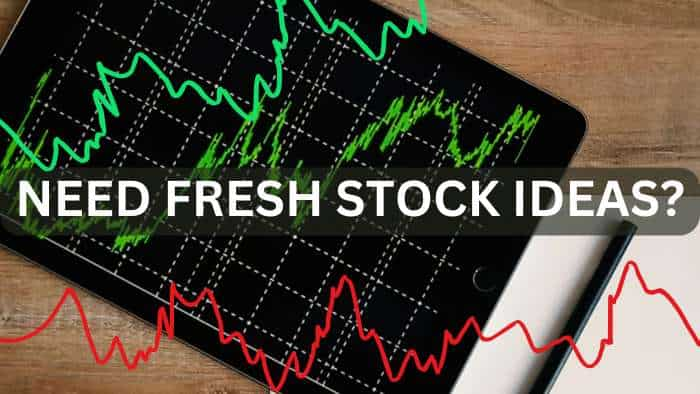ETFs vs Mutual funds - know what they are and how they are different
The individuals who are interested in investing may have a doubt regarding where to invest - mutual funds or Exchange Traded Funds (ETFs).

ETFs Vs Mutual Funds in India: The individuals who are interested in investing may have a doubt regarding where to invest - mutual funds or Exchange Traded Funds (ETFs). One must be aware of the advantages and the disadvantages of these before making an investment. The interested individuals can also login to the official website of National Stock Exchange (NSE) at nseindia.com for further details.
See Zee Business Live TV Streaming Below:
Exchange Traded Funds (ETFs)
As per the NSE website, ETFs are just what their name implies: baskets of securities (Indices) that are traded, like individual stocks, on an exchange. Now, unlike the regular open-end mutual funds, ETFs can be bought and sold throughout the trading day like any stock. ETFs have lower cost of transactions and annual changes compared to index funds. ETFs are considered a safer product for risk averse and first-time investors who want market linked returns.
Mutual Funds
It must be noted that a Mutual Fund is an investment vehicle that is made up of a pool of funds collected from many investors for the purpose of investing in securities such as stocks, bonds, money market instruments and similar assets, as per the NSE website. One of the main advantages of mutual funds is that they give small investors access to professionally managed, diversified portfolios of equities, bonds and other securities, which would be quite difficult (if not impossible) to create with a small amount of capital.
Comparison between ETFs and Mutual Funds
A prospective investor must note that in essence, ETFs trade like stocks and therefore offer a degree of flexibility unavailable with traditional mutual funds. Specifically, investors can trade ETFs throughout the trading day as in stocks.
In comparison, in a traditional mutual fund, investors can purchase units only at the fund's NAV, which is published at the end of each trading day. In fact, investors cannot purchase ETFs at the closing NAV. This difference gives rise to an important advantage of ETFs over traditional funds: ETFs are immediately tradable and consequently, the risk of price differential between the time of investment and time of trade is substantially less in the case of ETFs.
It must be noted that ETFs are cheaper than traditional mutual funds and index funds in terms of fees. However, while investing in an ETF, an investor pays a commission to the broker. The tracking error of ETFs is generally lower than traditional index funds due to the "in-kind" creation / redemption facility and the low expense ratio. This "in-kind" creation / redemption facility ensures that long-term investors do not suffer at the cost of short-term investor activity.
Get Latest Business News, Stock Market Updates and Videos; Check your tax outgo through Income Tax Calculator and save money through our Personal Finance coverage. Check Business Breaking News Live on Zee Business Twitter and Facebook. Subscribe on YouTube.
RECOMMENDED STORIES

IPL Auction 2025 Free Live Streaming: When and where to watch Indian Premier League 2025 mega auction live online, on TV, Mobile Apps, and Laptop?

SIP vs PPF: How much corpus you can build in 15 years by investing Rs 1.5 lakh per year? Understand through calculations

SBI Senior Citizen Latest FD Rates: What senior citizens can get on Rs 7 lakh, Rs 14 lakh, and Rs 21 lakh investments in Amrit Vrishti, 1-, 3-, and 5-year fixed deposits
10:15 AM IST








 Gold’s rollercoaster ride: Key factors driving the ongoing price volatility
Gold’s rollercoaster ride: Key factors driving the ongoing price volatility Invest in gold ETFs on Dhanteras for purchasing gold jewellery later: Experts
Invest in gold ETFs on Dhanteras for purchasing gold jewellery later: Experts Silver ETFs getting investors' traction; asset bases reach Rs 1,800 crore
Silver ETFs getting investors' traction; asset bases reach Rs 1,800 crore Axis Mutual Fund aims to raise Rs 50 crore from new ETF fund of funds
Axis Mutual Fund aims to raise Rs 50 crore from new ETF fund of funds What is Exchange Traded Fund? Experts decode meaning, advantages and disadvantages of ETF
What is Exchange Traded Fund? Experts decode meaning, advantages and disadvantages of ETF